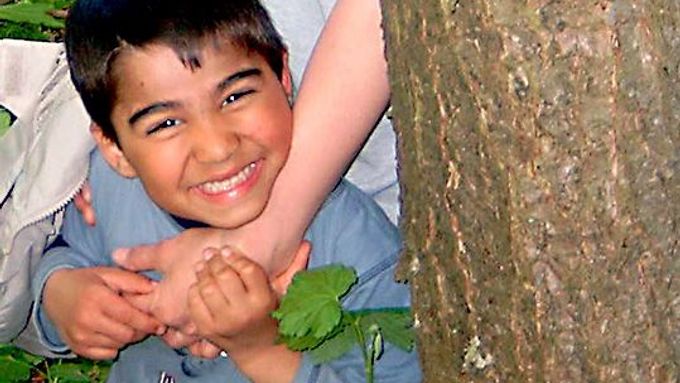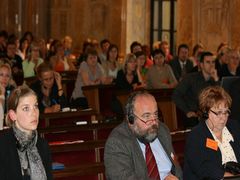Brno - While no Czech family has ever adopted a child from abroad, married couples in other countries have been adopting Czech children for years now. Since 2000, a total of 277 Czech children, a vast majority of them Roma, have found new families abroad, mainly in Denmark, Germany and Italy.
"Czech parents are most interested in how the child will do at school, and whether he or she is gifted enough to get a university degree," said psychologist František Schneiberg from the Institute of Social Medicine and Public Health, speaking at last week's conference on international adoptions in Brno. "Adoption seekers from abroad are not interested in these qualities at all, and raise children in a much more liberal way."
Domestic adoptions are better
Experts from dozens of countries, who last week convened in Brno, agreed that adoptions by foreigners should only be the last resort. Although, say said, for children who cannot find new parents in their home country, international adoption is a suitable and often very beneficial solution.
"Our priority is to find parents in the country where the child was born. In the Czech Republic, we find this difficult to achieve for Romani children," said Lenka Pavlová, director of Úřad pro mezinárodněprávní ochranu dětí (UMPOD), the local authority for international legal protection of children.
The stereotype prevailing among Czechs is that Roma children are less talented, which is one of the reasons they are unwanted.
Cross-border adoptions are ruled by the 1996 Hague Convention, which the Czech Republic signed in 2000. The document was designed to make sure that adoptions of children born in one country by parents living in another country follow requirements embedded in the UN Convention on the Rights of the Child.
Read more: Amnesty Int'l: Roma discrimination in ČR persists
Different skin colour an advantage
Czech parents' attitudes to childrearing described by Schneiberg are one of the reasons why most of the Czech children adopted by families abroad are of Romani origin. Unlike Czechs, foreigners do not mind adopting a child of an ethnic origin or a handicapped child.
"In Denmark, different skin colour is actually an advantage. Everyone can immediately see it is an adopted child, which the Danish society values very highly," says Margrethe Primdahl, director of AC International Child Support, a Danish organisation mediating international adoptions.
Read more: New law to keep children with their families
"Adoptions of Czech Romani children in Denmark have been very successful and all children are living satisfied lives. We would like to accommodate more," said Danish expert Vladimir Weissmann, speaking in fluent Czech.
Parentless children's promised land
Denmark boasts a 50-year tradition of international adoptions. As early as 1950s, Danish parents adopted children of black US soldiers, who were left behind in Germany after the World War Two. The 1960s and 70s saw a waive of adoptions from Korea, and in the 1990s Danish childless couples started looking to central and eastern Europe.
Schneiberg believes that, from the child's point of view, it is completely irrelevant which country he or she lives in. "What matters is how the child is accepted by the extended family, and how quickly the child familiarises itself with the new environment," he says.
Schneiberg adds that there have been no reports of integration difficulties among children adopted by parents abroad, and that even the initial language barrier is not an obstacle.
Romani children popular
Italian psychologist Marina Virgillito, who had adopted a Romani girl after having one child herself, confirmed Schneiberg's words: "After several months, she spoke Italian as easily as my son. It was unbelievable."
Another Italian couple, which arrived in Brno to meet other adoptive families, spoke to their adopted children in fluent Italian, after the two Romani brothers had only lived with them in Italy for three months.
Romani children are especially popular in Italy. Carmella Cavallo, director of the Italian central authority for international child abductions, said that Romani children easily blend in because they resemble the Italian children in both their skin colour and their temperamental behaviour.
"Italians don't mind lively or restless children at all. On the contrary, they like them," said one of the mothers present to the event, while her son frolicked on the stage between the debating international experts.
Photographs of children courtesy of AC International Child Support










